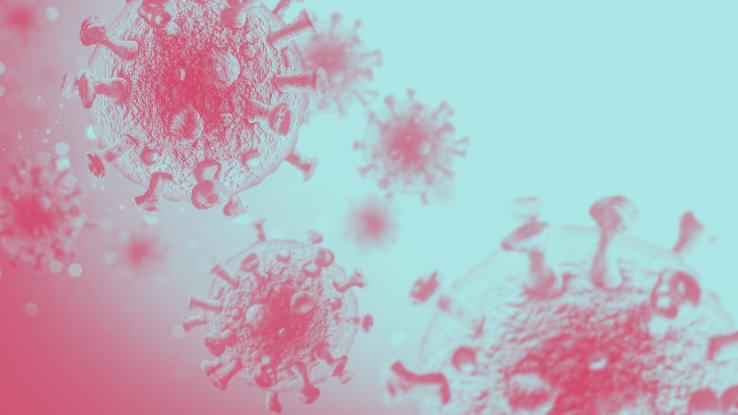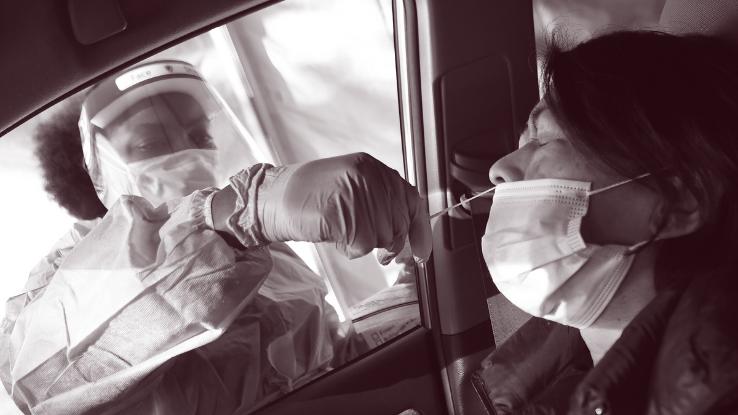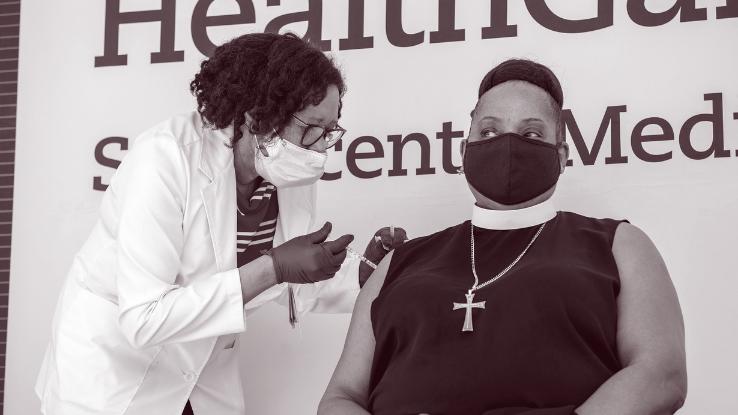
Many countries around the world have successfully managed and slowed outbreaks of the coronavirus and the illness it causes, COVID-19. However, this virus is still impacting countries and communities in an unpredictable way as infections continue spreading. It’s still essential to take action to protect yourself, and heeding the most up-to-date warnings from trustworthy groups like the Centers for Disease Control and Prevention (CDC) and the World Health Organization (WHO) can help you do so.
In addition to regularly checking for updates from those organizations, follow these recommendations to continue protecting yourself during the COVID-19 pandemic.
General Recommendations for Protecting Yourself and Others
As Symptomfind notes, taking a few key steps and following some simple guidelines can help you limit your exposure to the COVID-19 virus. It’s important to remember that recommendations can change frequently, and new information can emerge quickly. Check with the CDC and WHO periodically to receive updates to guidelines and find out the latest details.

- Remain alert and proactive about your health. While older people and people with preexisting medical conditions (such as asthma, diabetes, and heart disease) are more vulnerable, anyone can be impacted by the virus. The best way to keep yourself from getting sick is to avoid exposure in whatever way you can.
- Wash your hands regularly with soap and water for 20 seconds every time. If you don’t have immediate access to soap and water, clean your hands using a coin-sized amount of hand sanitizer that’s at least 60% alcohol.
- Sneeze and cough into your elbow to avoid spreading germs into your hands. Immediately wash your hands after coughing or sneezing. If you cough or sneeze into a tissue, throw it away immediately.
- If you notice respiratory problems or are experiencing a fever, seek medical attention immediately.
- Follow all current state and local directives regarding the pandemic, such as wearing a mask in public and practicing social distancing. You may face legal consequences — and expose yourself to the virus — if you neglect to do so.
If you’re fully vaccinated — meaning you’ve received both doses of either the two-dose Pfizer or Moderna vaccine or you’ve received the single-dose Janssen vaccine — and it’s been at least two weeks since you received your final dose, the CDC has provided updated recommendations you can follow as a fully vaccinated person. Some, but not all, of these guidelines include the following:
- You may resume activities you engaged in before the pandemic began so long as you follow current health and safety guidelines.
- The CDC strongly urges vaccinated individuals to continue wearing masks indoors “to maximize protection from the Delta variant and prevent possibly spreading it to others”. Doubly so for anyone who lives in or is visiting an area with high transmission rates.
- You DON’T need to get tested for self-quarantine after traveling if you are fully vaccinated.
To review the full list of updated guidelines for people who are fully vaccinated, visit the CDC website.
Additionally, the WHO has provided updated recommendations to follow if you live in a community where COVID-19 is continuing to spread. In addition to practicing physical distancing, avoiding crowded areas, washing your hands frequently, and keeping rooms at your home and workplace ventilated well, the organization advises the continued use of masks to prevent the spread of the virus. To ensure that your mask protects you and others effectively, follow these guidelines from the WHO:
- Choose a mask that covers your nose, mouth and chin completely; there shouldn’t be gaps between the mask and your face.
- Avoid using masks with valves.
- Wash your hands before putting your mask on and after taking it off.
- Wash your hands any time you touch your mask while you’re wearing it.
- Dispose of single-use masks in the garbage immediately after removing them.
- Wash your mask every day if it’s made of fabric.
- Don’t use masks that look damaged or fit loosely.
What to Do If You’re Sick or Think You Might Be
If you currently have COVID-19 or are experiencing symptoms, the CDC suggests following these steps to take care of yourself and limit the spread of the virus to others in your household and your community:

- Stay at home unless you need to receive medical care. This means not leaving your house.
- Stay out of public areas as much as possible when you do need to leave. Don’t use public transportation such as buses and subways. Also, avoid taxis and ride-share vehicles.
- If possible, sequester yourself in a specific room in your home away from other people and pets and use a separate bathroom.
- Whenever you’re around other people in your home or in public, wear a cloth face covering.
- Monitor your symptoms and contact your doctor immediately if they worsen.
- Seek emergency medical attention if you experience emergency warning signs of COVID-19. These include trouble breathing, a blue tint to your lips or face, lasting pain or pressure in your chest, and trouble waking up or staying awake.
- When seeking medical care, whether from your primary care provider or emergency services, notify them ahead of time that you have COVID-19 or believe you might have it. This helps them better prepare for your visit and protect their staff members.
- Disinfect high-touch surfaces in your personal room and bathroom daily. These include phones, keyboards, remote controls, counters, tabletops, doorknobs, bathroom fixtures and bedside tables.
- Someone in your home who isn’t sick should disinfect high-touch surfaces in common areas of your home daily.
- Continue to cover your coughs and sneezes and wash your hands frequently or use alcohol-based hand sanitizer to clean your hands.
Learn More About COVID-19
These articles and resources can help you learn more about a variety of topics related to the COVID-19 pandemic.

COVID-19 Safety Tips and News Coverage
- COVID-19 Terms: The Difference Between Social Distancing, Physical Distancing & More
- Time for a Digital Detox? Here’s How to Regulate Your News Intake While Still Staying Informed
- What Can We Do to Protect Our Mental Health During the COVID-19 Pandemic?
- Need to Navigate Public Spaces During the Pandemic? Here Are Some Safety Tips
- Everything You Need to Know About COVID-19 Mask Care
- What Is Contact Tracing And How Does It Work?
- What Is Pandemic Fatigue, and How Can You Fight It?
Global Changes and Effects of the Pandemic
- How Have Local Farmers’ Markets Adapted to COVID-19?
- Life After COVID-19: Reflecting on How the Pandemic Changed Schools & Education in Lasting Ways
- How Did Life Change After the Spanish Flu (and How Might Ours Change Post-Covid-19?)
- Life After COVID-19: How Did the Pandemic Change Our Approach to Air Travel?
- How Has COVID-19 Changed Film Fests and Award Shows?
- How the COVID-19 Pandemic Has Changed Workplaces in Lasting Ways
- Life After COVID-19: Did Public Transit Change as a Result of the Pandemic?
- How Will the COVID-19 Pandemic Impact Our Approach to Art Museums?
- I Went to Europe This Summer so That You Don’t Have to — and Trust Me, You Don’t Want to Go
- What Can We Learn From Vaccine Passports Around the World?
- Is an Airbnb Rental the Perfect COVID-19-Safe Getaway?
- Is TSA PreCheck Worth the Investment in a Post-Covid World?
- The Surprising Impact of COVID-19 Shutdowns on the Environment
Quarantine Entertainment Resources
- Virtual Vacation: Dive Into Our Marine National Monuments
- Virtual Vacation: Experience the Excitement, Flavors and Culture of Madrid
- Virtual Vacation: From Street Cats to K-Pop in Seoul, South Korea
- Virtual Vacation: Wander Through the Peaceful Village of Iseltwald in Switzerland
- Virtual Vacation: How to Spend the Perfect Day in Rio de Janeiro at Home
- Virtual Vacation: Explore the Azores From the Comfort of Your Couch
- Virtual Vacation: Travel to Bangkok Without Leaving Your Home
- Virtual Vacation: Check Out the Frozen, Crystal Magic of Reykjavik, Iceland
- Virtual Vacation: Indulge in the Passion and Energy of Buenos Aires, Argentina
- What Is “MasterClass” and Why Is It the Perfect Quarantine Rabbit Hole?
- From “Contagion” to “Station Eleven,” Why Are Folks Craving Apocalyptic Content During a Pandemic?
- Tips for Staying Connected With Loved Ones During the Pandemic
- Your Whole Family Can Enjoy These Virtual Museum Visits From the Couch
- How COVID-19 Inspired an Animation Renaissance
- Life After COVID-19: How Has the Pandemic Affected Independent Booksellers?
- What Makes the Perfect Watch — or Read — for Pandemic Times?
- What the Emmys Tell Us About a Year of Watching TV Continuously
- Move Over, “Animal Crossing” — Nintendo’s “New Pokémon Snap” Is the Latest Low-Stakes Video Game Escape
- Watch Met Opera Tonight and Learn Other Ways to Stream Arias from Home
- Visit These Atmospheric Video Game Worlds From The Comfort of Your Own Home
- How Are TV Shows Narrating Pandemic Times?
- All the Books, Films, Shows and Music We’ll Always Associate With the Pandemic






